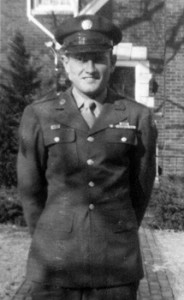 By Steve Brawner
By Steve Brawner
© 2016 by Steve Brawner Communications, Inc.
An American hero was laid to rest earlier this month.
Cletis Overton, 95, of Malvern, who died Feb. 29, enlisted in the Army in 1940 to serve as an aircraft mechanic and was sent to the Philippines. On Dec. 8, 1941, he awoke to the sounds of an air raid alert, bombs and gunfire. The Empire of Japan’s attack on the Philippines had begun.
When the enemy overtook his position on the Bataan peninsula, Cletis and his fellow soldiers were force-marched 60 miles to a prison camp. During what became known as the Bataan Death March, he saw three Americans stumble and fall, only to be quickly executed. Between 600 and 700 Americans and many more Filipinos died.
In a series of prison camps, Cletis and his fellow prisoners were forced into labor, given little food, and provided almost no medical care as they battled malaria, dysentery and other diseases.
Finally, as American forces drew near the Japanese positions, Cletis and his fellow prisoners were herded from Mindanao Island into the sweltering hold of a Japanese cargo ship. They received only a cupful of rice and a few swallows of water each morning and afternoon. Toilet facilities for 750 men, many with dysentery, consisted of two five-gallon empty oil barrels lowered into the hull. Then they were transferred to another ship, the Shinyo Maru, where conditions were just as bad.
As the Shinyo Maru departed the island, presumably for Japan, it was struck by a torpedo fired unwittingly by an American submarine. A wave of water almost waist deep rolled toward Cletis. Around him, men struggled and yelled. He fought his way toward a ladder through kicking legs, flailing arms, and scratching fingernails. Then he was rolled underwater by a rushing wave. For a moment, death seemed so certain that he considered taking a gulp of water to hasten it. Then he considered reasons to live – his parents, his girlfriend, and his belief that he had not yet done anything for God.
Somehow, he found an opening, made it to the ocean surface, and swam back to Mindanao Island while avoiding enemy soldiers who were shooting the survivors in the water. He was found by friendly Filipino forces. Six hundred sixty-eight men died in the sinking. Eighty-three survived. One died on the island, and one stayed to help the Filipinos.
The men were harbored by the Filipinos until they were met by the submarine USS Narwhal for the first leg of their trip home. Aboard the USS Monterrey, they whooped and hollered as the Golden Gate Bridge came into view. Soon he was home in Arkansas. As his mother, Virgie, saw him, she prayed in thanksgiving, they embraced, and then she cooked him fried chicken, his favorite meal.
It’s called the Greatest Generation not just because of what happened during the war, but afterwards. Cletis married his girlfriend, Maxine, became a dad and a grandfather, and when Maxine died, married his second wife, Adrienne. When he was in the water after the torpedo struck the Shinyo Maru, he promised God that he would share his Christian testimony whenever he talked about his experiences. He kept that promise. He harbored no bitterness toward his captors. He would say the guards had become what they had been taught to become, and that they were prisoners, too. In 2000, I helped him write a book about his life. One day, he told me undramatically, “If there is an attack on the United States or its possessions, and they needed 80-year-old men, I’d go.”
According to the National World War II Museum in New Orleans, 16 million Americans fought in World War II, they’re dying at the rate of 430 a day, and there are only 698,000 of them left – about 7,604 in Arkansas.
They all have stories to tell. Some will share them, and some will not. How can you know if your loved one will? Ask. Do it carefully and respectfully. But ask, because tomorrow there will be 430 fewer of them.
Related: Following in the footsteps of the Greatest Generation.
Great column Steve …
Thank you, Lance.
Thanks for putting that out there, Steve. I see you do good work.
Thanks, Dan.
I love it